Since I completed the Speech Articulation course, we’ve been learning how to write effective IEPs (Individual Education Plans). Goals for Social Skills are an important measure your students’ social skills and if they have particular areas they will need work on. This ensures that the child with a learning disability is getting the right specialised instruction and related services to ensure success and developmentally appropriate intervention skills.
This list of Goals for Social Skills are a perfect addition to your plans where you feel you are lacking the knowledge in finding a list of these goals.
>>> Check out this Yearly MEGA Social Skills bundle of activities to target SEL activities suited to Pre-k through to second grade! Grab the social skills bundle at 30% off from my store here when you download this FREE Mood Meter. It will unlock the discount once you download it. <<<
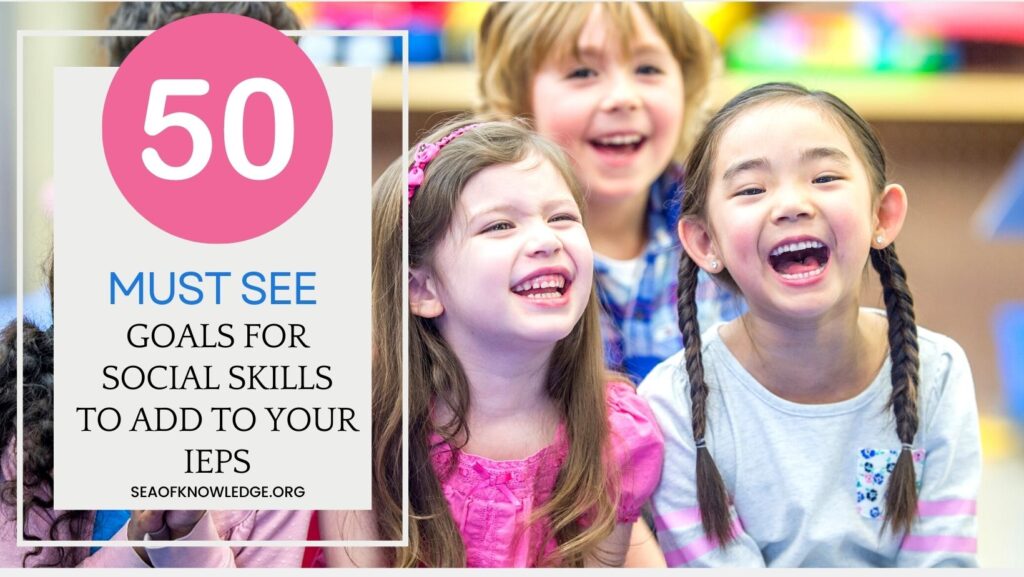
*This post contains affiliate links.
I’ve curated them below for you of course add the ones you feel would be best suited for you individual student’s needs.
50 Goals for Social Skills
These goals are a great starting point to see which areas in which the child needs improvement in their social skills.
Social Emotional IEP goals make it possible for educators to support the mental health of high risk learners, and I’m all for adding any and every chance I get to incorporate SEL skills into the classroom.
There are five core competencies in SEL for students to develop; self-awareness, social awareness, self-management, relationship skills, and responsible decision-making.
When students are equipped with these competencies, they are better at understanding their emotions and dealing with social situations.
Some children naturally need more time to develop SEL skills, so adding these to an IEP is a great method to track their progress.
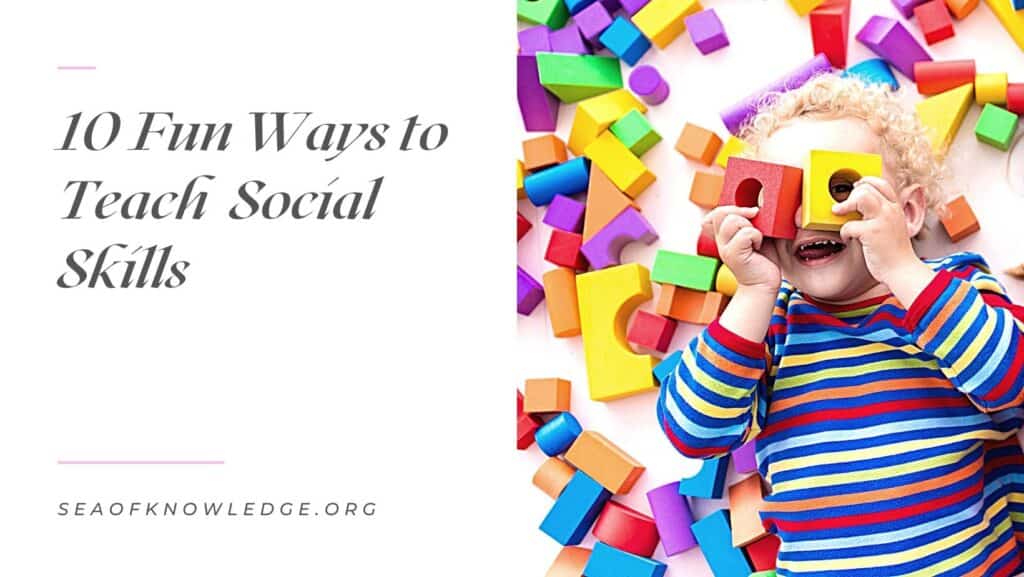
Check out this super popular post on 10 fun ways to teach social skills!
Top IEP Goals Resources:
These books offer valuable insights and practical guidance for educators working in K-12 classrooms, particularly those involved in developing Individualized Education Programs (IEPs). “Visible Learning for Teachers: Maximizing Impact on Learning” explores evidence-based strategies that teachers can implement to enhance student learning outcomes. It emphasizes the importance of understanding which teaching practices have the greatest impact on student achievement.
“800+ Measurable IEP Goals and Objectives: For use in K-12 Classrooms” is a comprehensive resource that provides educators with a wide range of specific and measurable goals to tailor IEPs to individual student needs effectively.
Lastly, “From Gobbledygook to Clearly Written Annual IEP Goals” focuses on enhancing the clarity and effectiveness of IEP goals, ensuring they are understandable and actionable for all stakeholders involved in the education process. Together, these books offer practical tools and strategies to support educators in improving student learning and outcomes within inclusive classroom settings.
Visible Learning for Teachers: Maximizing Impact on Learning
800+ Measurable IEP Goals and Objectives: For use in K-12 Classrooms
From Gobbledygook to Clearly Written Annual IEP Goals
For Academic Social Skills
Academic skills are usually developed throughout the year, sometimes a child might themselves behind on academic skills, however they usually show all the appropriate social skills to help them achieve these academic skills It’s essential they learn these skills to be able to develop their skills appropriately.
- Comprehends age-appropriate directions and can follow them correctly.
- Can tune out distractions to complete tasks until they are finishes.
- Can participate in class discussions.
- Participates in class discussions (asking and answering questions).
- Can stay on task without direct supervision.
- Is prepared for class with a paper, book and pencils.
- Can participate in a class discussion.
- Turns in completed homework or assignments on time.
- Class work and assignments are done as neatly as they are able to.
- Can participate in class and group discussions by listening and responding appropriately.
Top Resources for Social Skills
These resources are invaluable tools for supporting children, particularly those with autism or similar special needs, in developing emotional regulation and social skills.
The “Calm Down Corner Supplies” and “Emotion Chart for Kids” provide practical materials and visuals to create calming environments and help children identify and manage their feelings.
The “SkillEase Feelings in Control Flip Book” and “Autism, Emotions, and Feeling Book for Kids” offer interactive resources to teach emotional awareness and coping strategies.
The “Social Skills Printables Workbook” provides structured activities specifically designed for students with autism to improve social interaction and communication skills.
Additionally, “The Self-Regulation Workbook for Kids” focuses on cognitive-behavioral techniques and coping strategies to help children handle anxiety, stress, and strong emotions effectively.
Together, these resources empower educators, therapists, and parents to better support children in building essential life skills for emotional well-being and social success.
Sometimes, completing things like hands-on crafts to target SEL skills like this Diversity Bulletin Board is the best way. Get it right from the form here: Diversity bulletin board craft.
Assertion Social Skills Goal Bank
When a child exhibits healthy assertion skills, it’s often a great sign that he or she is developing great confidence skills which can be carried over throughout their life.
If the child isn’t showing these signs, there are ways we can show them on how to develop these skills, like showing the child activities that feature their favourite characters / toys to help motivate them.
Sometimes, completing things like hands-on social stories to target SEL skills like this how to manage my anger is the best way. Get it right from the post here: Social Story Anger Management for Kids printable
Or reading a social story with them on how to ask questions when they don’t understand something.
- Exhibits motivation for learning.
- Exhibits ambition to achieve.
- Asks the teacher a question when he / she doesn’t understand something.
- Student has a good level of self-esteem.
- Able to make eye contact with peers and adults.
- Can state a complaint using words and without argument
- Able to ask a question about a topic.
- The child can ask a question about something that is on his/her mind
Compliance Social Skills Goal Bank
These social skills can be changed and made appropriate for the level of students in your class.
You will need to alter them to make them measurable.
Before you set compliance skills goals, be sure to bear in mind the child’s capabilities. Age appropriate expectations are definitely important in this case.
- Follows teacher’s directions immediately.
- Follows instructions with a good attitude.
- Has a good attendance record.
- Returns to class on time after a bathroom pass.
- Treats teachers and adults with respect.
- Can maintain attention when listening to an instruction.
It’s essential that we try to give clear instructions, understand the child’s capabilities, what they’re able to do VS what they have learned to do recently.
Avoiding repeating instructions will also be beneficial in the long run, because it will train your students to learn to tune you out.
Sometimes, completing things like hands-on expected and unexpected behaviors to target SEL skills like this. Get it right from the form here: Expected and Unexpected Behavior Printables FREE
Instead, try using directives and positive reinforcement with students.
Also, calling out the students who actually listened to your directives, like; “Oh, look Lisa had packed away the markers in the box like I told her to. Great work Lisa.”
Positive reinforcement especially in SEL is such an important component when kids are learning to do the right thing, and when we lead by example, the kids follow!
Peer Relationships Social Skills Goal Bank
When measuring peer relationships, we need to remember that kids and children develop social skills at a different pace. We also need to remember that different personalities will not enjoy the same exact activities set out.
For example an introvert will not enjoy group activities and an extrovert will not usually be able to sit quietly in class the read / write.
So, keeping in mind these differences, we can proceed to add measurable goals to help identify whether the child or student does in fact need intervention.
- Can give others compliments. Not necessarily in preschool / kinder
- Can initiate play with peers.
- Can take turns without getting upset.
- Can show respect for others’ feelings and views.
- Refrains from teasing or laughing at others.
- Can accept compliments from others.
- Can work in a group.
- Treats others’ belongings with respects.
What to do when your child has no friends?
Kids are often told to just be themselves, but what if they don’t know who they are?
I wanted to target this question in particular, because I do see a lot of parents and friends worries about their children not having friends at school.
Sometimes, completing things like hands-on friendship crafts to target SEL skills like this can really help. Get it right from the form here: Friendship Craft Preschool
They worry that something maybe wrong. Most of the time, there is nothing wrong!
They are children, developing their own personalities and traits.
Another super cute and hands-on friendship crafts to target SEL skills like this can really help. Get it right from the post here: Friendship Bee Craft Preschool
It’s completely normal for children to not have friends right away when they start school and even two years into their schooling life.
More social skills activities and posts you may like:
- 10 Best Kindness Bulletin Boards to Promote Social Skills
- Teaching Social Emotional Skills to Preschool: 10 Super Easy Books on Kindness
- How Social and Emotional Learning Interventions Can Save a Child’s Emotional Wellbeing
- Social Story About Returning to School after Covid19
- Peace Teaching Social Skills Book! Hand Painting Fun!
- Teaching Social Skills Fantastic Hands-on Ideas and Free Printables!
- 10 Awesome Calm Down Area in Classroom Ideas: Plus Printable PDF Downloads
In this section we will be discussing the importance of kids making friends.
Kids need to interact with other people in order to grow and develop.
This is why it is important for them to make friends with people who have similar interests and hobbies as them.
When kids make friends they can feel more confident in themselves, which will help them become better adults later on in life.
You can also check out the FULL set of social skills printable pack where students can work on several skills in one. Get the FREE printable set from the direct form here: Social Skills Printable Pack for Kids
How do we encourage kids to make friends in a healthy way?
It is hard to make friends as an adult, but children have a much easier time. They can easily find other children who share their interests and hobbies.
At school, it’s essential that we teach our children to not leave anyone out, at school and at home with relatives and friends. I personally also wrote this social skills story titled “It’s Never Okay to Leave Anyone Out“.
I believe that every child should listen to this story, in every classroom.
Children usually make friends in school, online, or at the playground.
In order to make friends in school, it is important for the child to be involved with classwork and extracurricular activities.
Children can also make friends by playing with the other kids at recess or lunchtime.
If they are hesitant about joining a group of kids they don’t know, they can start by just waving hello and smiling at them.
How do kids ask to join play?
I also wrote a super cute Joining Play Social Skills Story about this because I knew some kids are particularly struggling with this. It includes a simple story and a printable kids book that they can color and take home.
It even includes posters that can be used in the classroom or home!
Self Management Social Skills Goal Bank
Self-management for children essentially comes in time. Children don’t naturally have this initiative to self-manage from the start. That is why we must lead by example. Kids normally love to imitate our behaviour.
Showing children that you’re able to show up for class on time, have books and plans ready all send a signal to the kids.
- Can accept criticism appropriately.
- Can care for property such as their lunch box / books appropriately.
- Can identify their feelings.
- Can self manage their feelings.
- Can control their temper.
- Behaves acceptably when not in the classroom (carries themselves the same way outside).
- Exercises safety and can identify danger.
I hope these Goals for Social Skills helped you in some way add to your IEP or your lesson plans in the classroom! It’s essential that we are aware of incorporating social emotional skills in our everyday lesson plans.
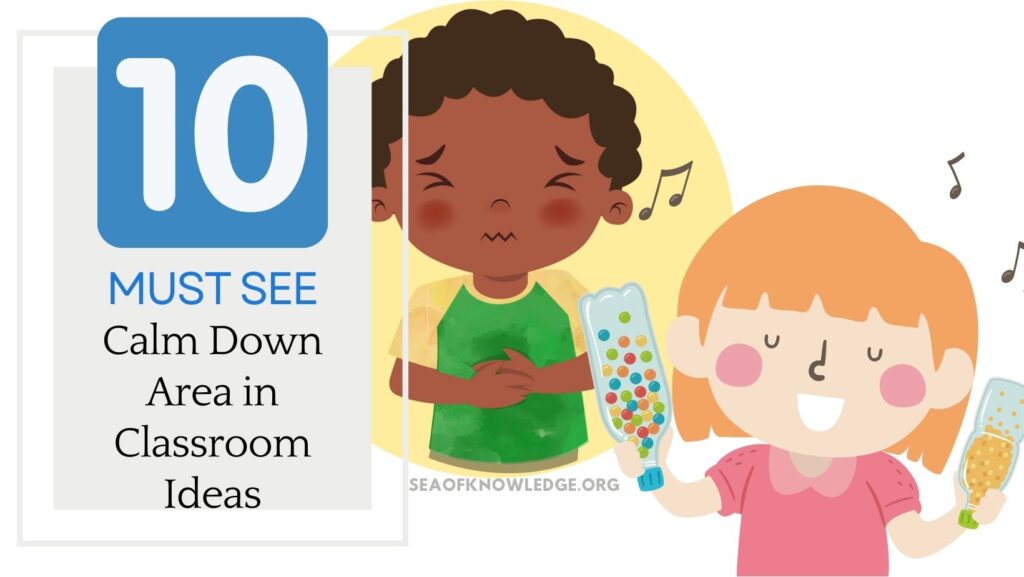
Don’t forget to check out this post on adding calm down printables to your calm area in the classroom! Pick up free posters.

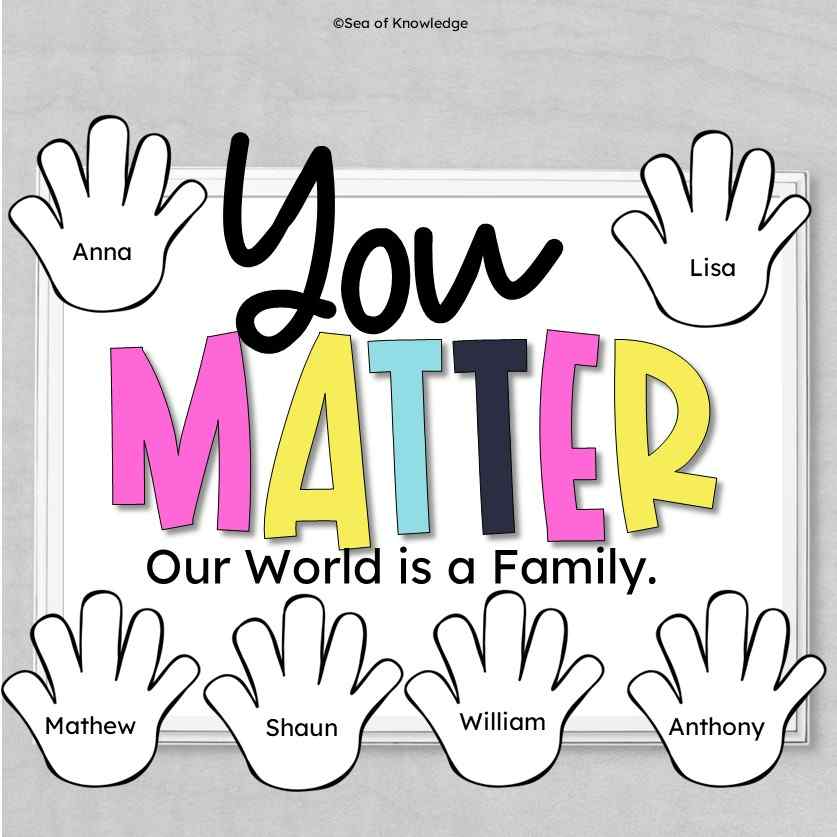
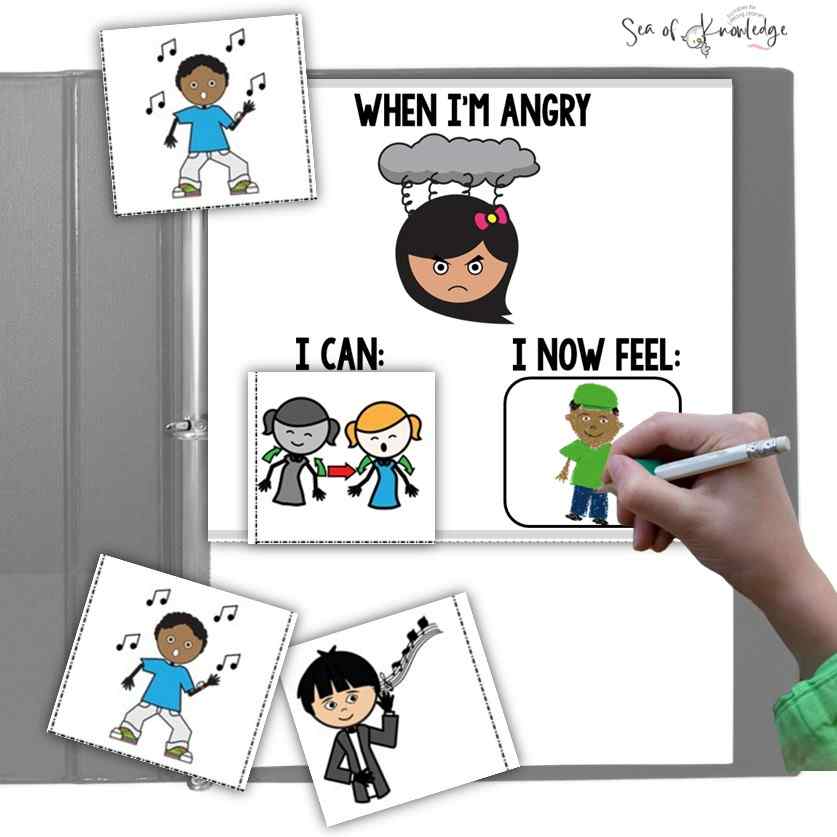
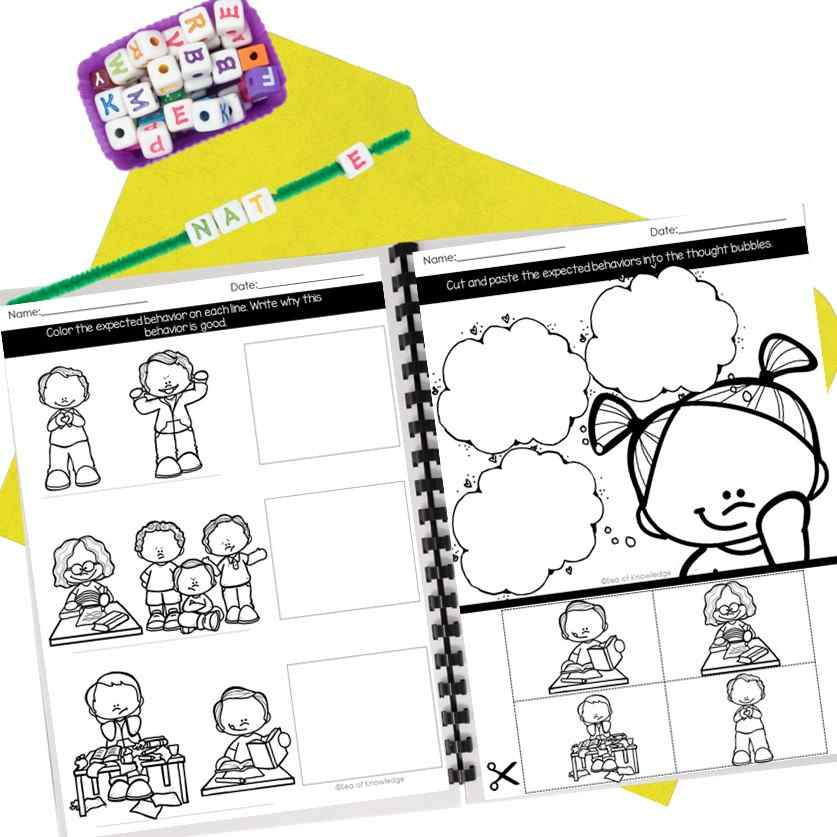
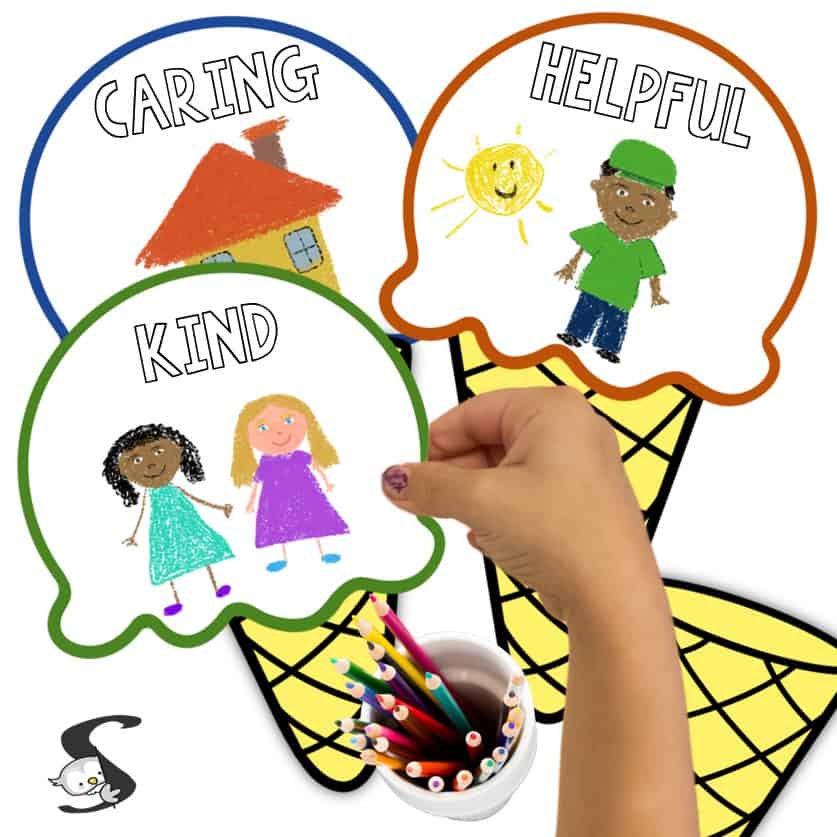
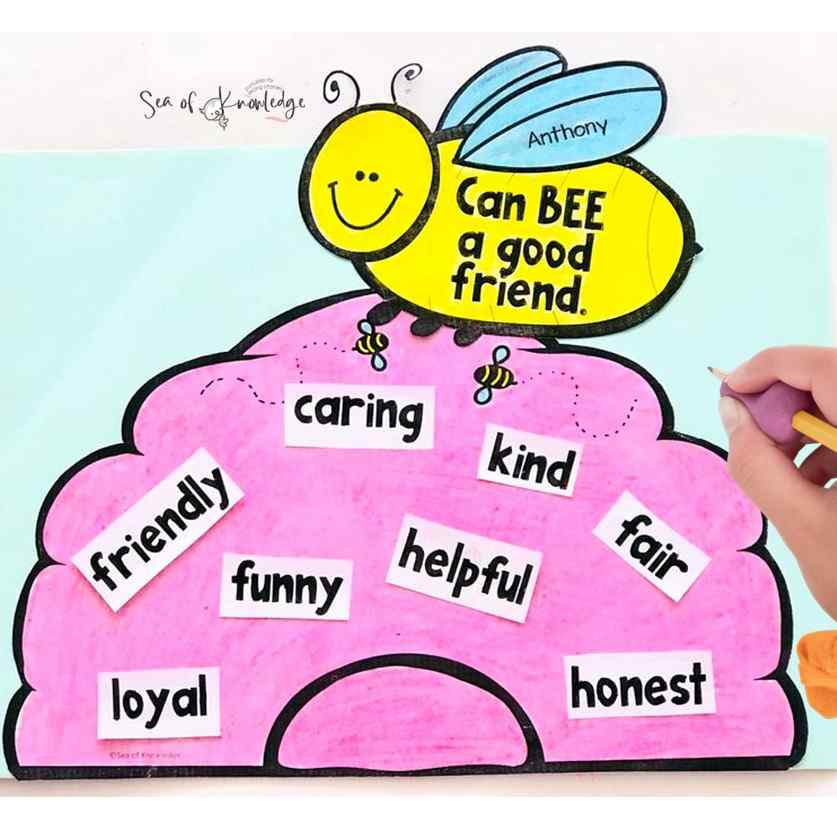

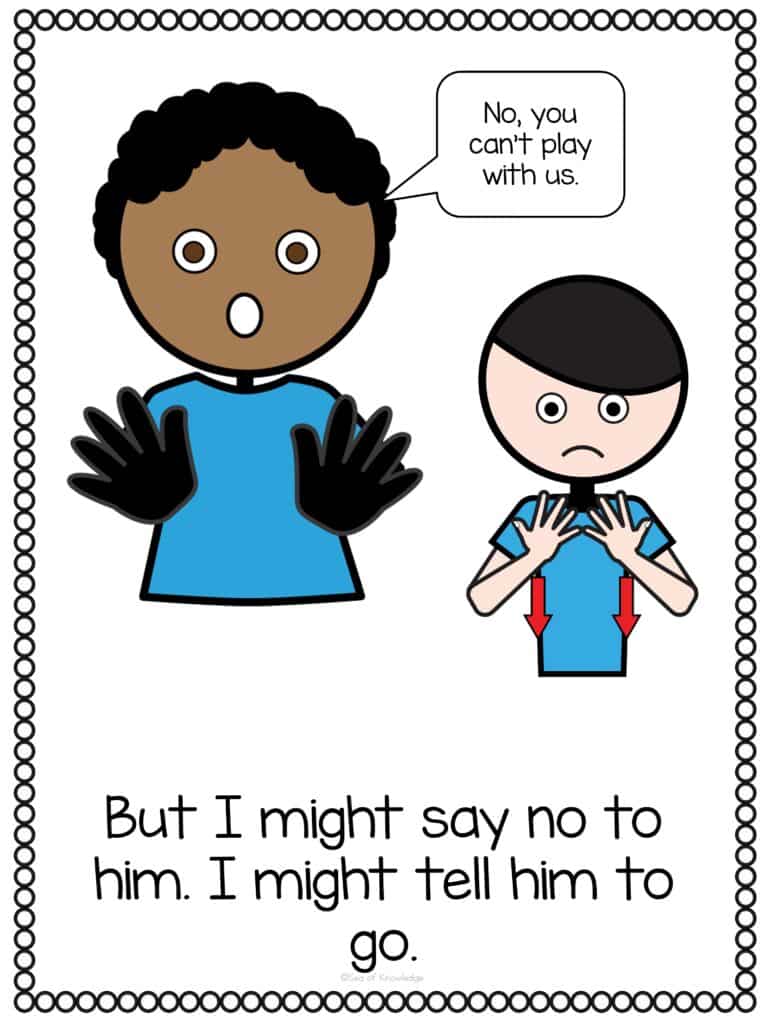
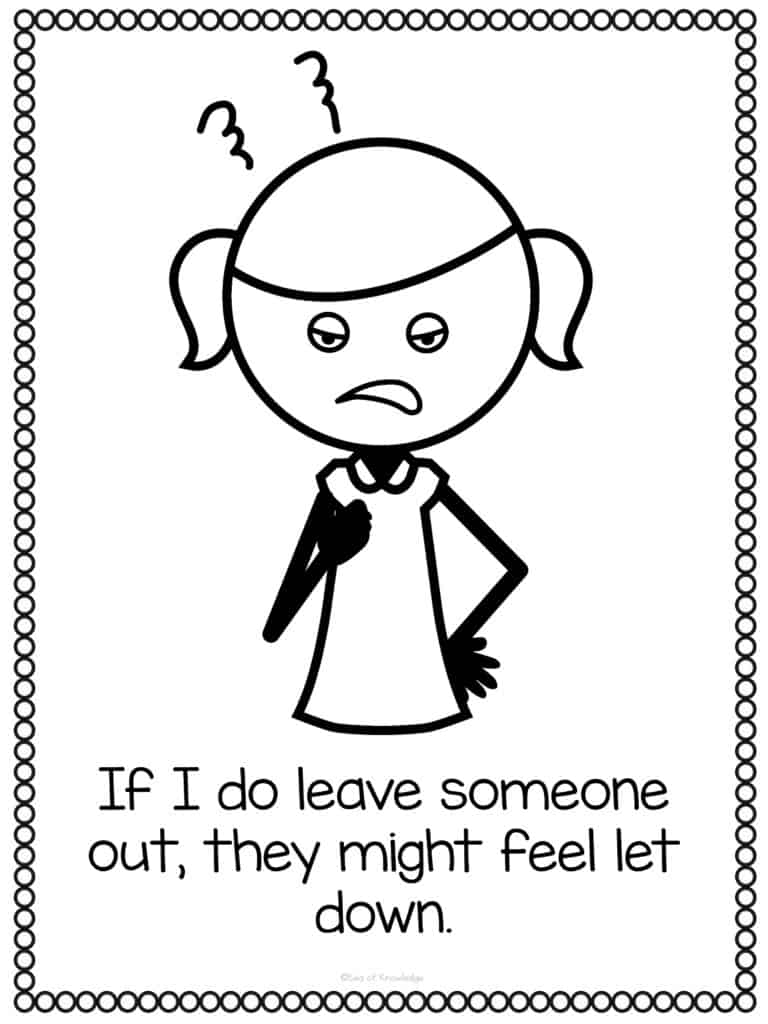
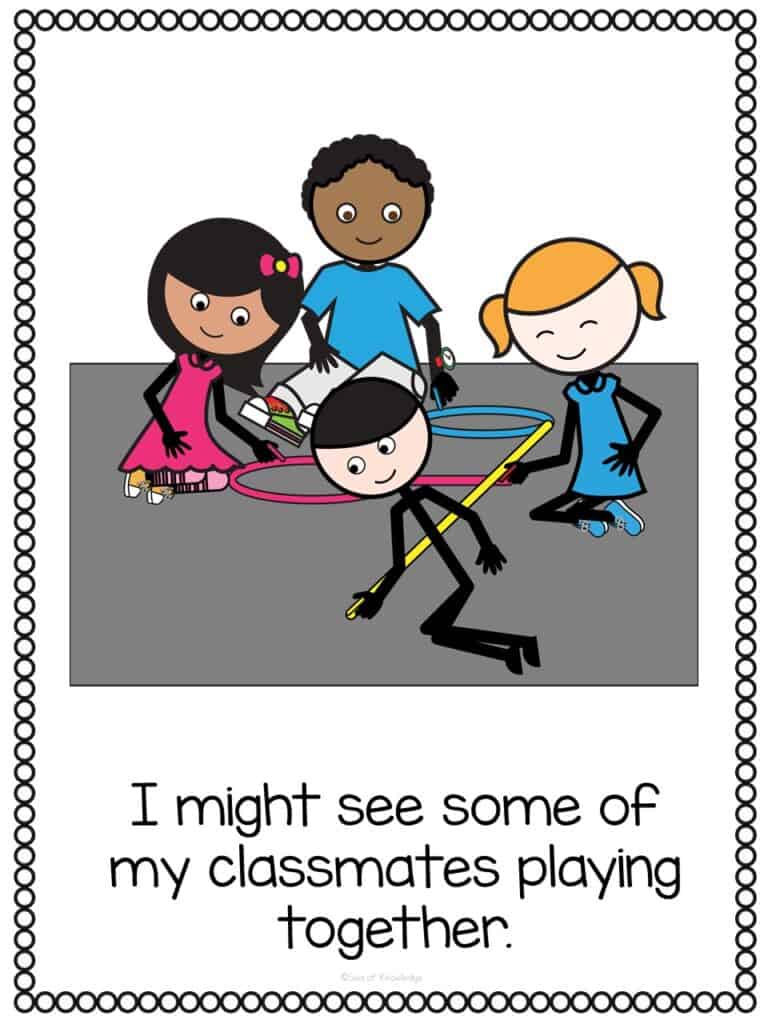
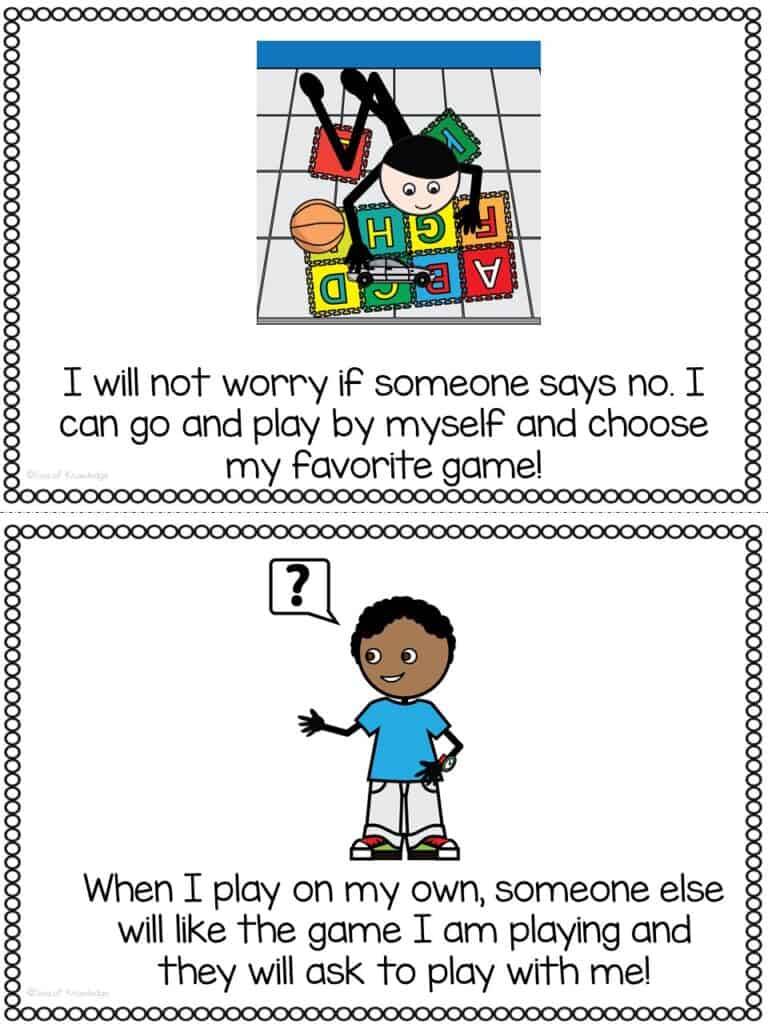
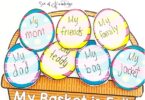
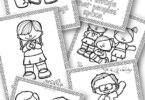
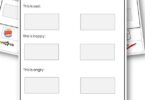

[…] Related: 50+ social skills IEP goals for kids […]
[…] on this blog, I outlined some simple IEP goals for social skills. In this post, we will target some simple behavior IEP goals. Every teacher or even speech […]